"Make money buying real estate."
"Now's the best time to buy a home."
"Buy houses for pennies on the dollar."
These are the kinds of remarks that people typically relate to foreclosures on real estate. In reality, foreclosures on real estate rarely result in instant financial success. Of course, there are great deals to be taken advantage of but still, it's not gonna offer easy money to anyone. Nonetheless, you can get those possible benefits through a lot of effort and devotion.
In this post, we'll answer the following questions:
What does foreclosure mean?
What are the pros and cons of buying a foreclosed property?
What are the steps in buying a foreclosed property?
So without further ado, let's get started.
Homeowners rarely buy a home outright or in cash. To finance the purchase, they typically obtain a mortgage from a bank or other lender. After that, it is the buyer's responsibility to pay the lender on time.
However, buyers occasionally miss these installments. The University of Illinois lists the following as typical causes:
Divorce resulting in financial strain
Huge medical expenses, especially when the homeowner is uninsured or underinsured
Death of the primary income earner
Loss of source of income (example: job or business)
Liens are legal devices included in all mortgage transactions. The lender's monetary interest in the house is safeguarded by a lien. If the borrower defaults on the loan, it enables the institution to take possession of the asset.
Banks typically assist financially troubled homeowners in attempting to resolve their issues. If those don't work, the bank will use the mortgage contract's lien to foreclose on the house and seize possession of it.
The bank will then either sell the house directly or put it up for auction. There are situations where the present owner will close a short sale. Through this procedure, a buyer can purchase the house at market value, even if that sum is insufficient to pay off the remaining mortgage balance.
Now, the event where the lender or the banker seizes the home, that's is called foreclosure.
Buying a foreclosed home has the following advantages:
Without a doubt, foreclosures typically come with a lower price tag or are priced below market value than other types of real estate. This is because the lenders who set their prices just want to get rid of the property faster.
Compared to regular residences, foreclosure properties may have a different bidding and purchasing procedure. But if the property isn't being sold in a cash-only auction, you might be able to get a loan to buy a foreclosed home.
One may obtain a traditional loan or one backed by the government through the Department of Veterans Affairs (VA), Federal Housing Administration (FHA), or S. financing from the United States Department of Agriculture (USDA) if the house is livable.
Lending secured by the government helps lower the cost of becoming a homeowner. However, the property needs to match the loan's minimal property requirements to be eligible for the loan.
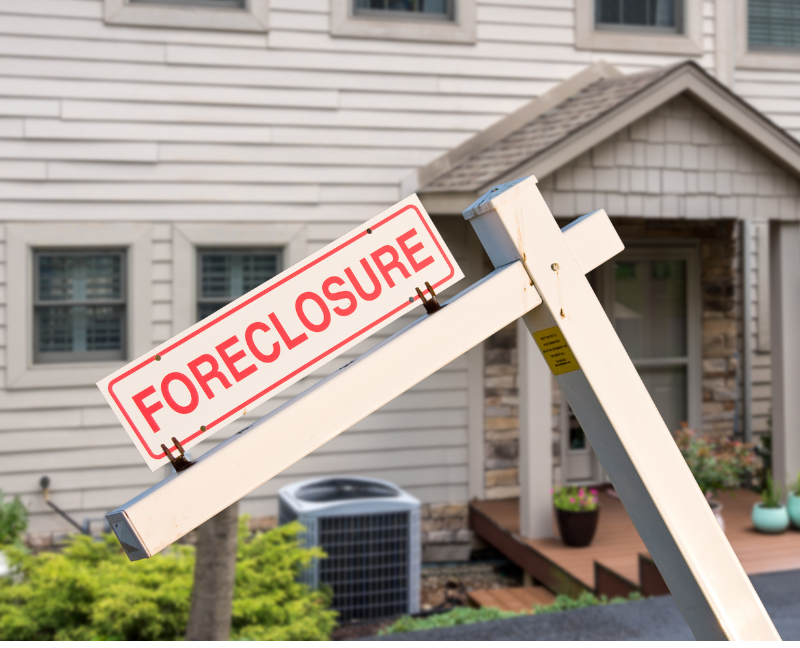
Buying a foreclosed home has the following disadvantages:
There might be a chance that the foreclosed home you're buying has been neglected by its former owners. If that's the case, you might need to not only check the problems but also, spend money to fix them.
Take Note: The primary goal of the lender is to get their money back as soon as possible, which nearly always entails an as-is selling.
If you don't have a lot of money to spend on repairs, you shouldn't purchase a foreclosure.
Just because a house is foreclosed upon legally does not mean it is abandoned. Squatters may be drawn to foreclosed properties since they are sometimes vacant for months or even years. You have the right to evict a squatter who occupies the house if they do. However, evicting them may not be easy. Sometimes, it might take months to complete the eviction and you have to spend thousands of dollars for legal costs.
Here are some questions people commonly ask before purchasing a foreclosed property:
Purchasing a repossessed property comes with risks related to neglect, damage, and property degradation. On the other hand, buying a foreclosed home is beneficial since it lets you save money because you are getting the house at a reduced price.
When determining whether a foreclosure is the best option for you, consider your financial circumstances and ability to make repairs. Because the property might require more work than you anticipated, weigh the risks involved in your investment. Consider all the options carefully before determining if purchasing a foreclosed home is a wise move for you.
Whether purchasing a foreclosed home is a wise investment depends in part on your real estate investing objectives.
For those looking to purchase a home at a reduced price or below market value or keen to restore and customize a property, purchasing a foreclosure may present a special opportunity.
However, you should also consider the disadvantages it might have, such as the amount you might spend fixing the property.
Nonetheless, knowing whether it's the right property for you or not depends on your real estate goals and circumstances. If you decided to pursue a foreclosed property, we’ve written a detailed guide on what to expect when buying a foreclosed home.
No-wake lakes in Indiana offer peaceful boating for water enthusiasts. Flint Lake, Lake of the Four Seasons, and others have "no-wake" policies to keep boat speeds low for kayaking, paddleboarding, and fishing.
The limits protect the ecology, reduce shoreline erosion, and provide a peaceful setting for residents and visitors to enjoy the scenery and pleasure without high-speed watercraft.
The calm charm and conservation efforts of Northwest Indiana's no-wake lakes attract nature enthusiasts and those seeking a quieter, more relaxing boating experience in dramatic scenery.
In the first and second parts, we discussed what are the lakes in northwest Indiana and the Indiana all-sports lakes. So, in this last part, we will tackle what are the no-wake lakes in Indiana.
No-wake lakes, such as Fish Lake in Walkerton, Indiana, give prospective homeowners the chance to live near water and take in the tranquil serenity of the outdoors.
The advantages of this are that no-wake lakes in Northwest Indiana, like Flint Lake and Lake of the Four Seasons, are ideal for kayaking, row boating, or pontoon rides, offering a tranquil, serene environment, making them better suited for individuals seeking a peaceful and quiet setting rather than those desiring high-speed recreational activities, providing better options for those who want to enjoy fishing on a calm lake.
The disadvantage of this is that the popular no-wake lakes such as Flint Lake and Lake of the Four Seasons restrict boating to non-motorized boats, trolling motors, or slow pontoon boats, typically situated in more rural areas, often featuring lakefront homes for sale, making them highly sought-after destinations for those seeking a serene, rural lifestyle within a no-wake lake community.
The following is a list of lakes in Indiana that are considered to be no-wake zones;
Upper and Lower Fish Lakes make up Fish Lake, which is two lakes. Both Upper and Lower Fish Lakes are 273 acres. No-wake lakes prohibit motor boats: trolling or low-horsepower outboard bass boats and pontoons. Lake fishing is permitted.
Few amenities near Fish Lake. This is because the lake is rural. Laporte, 9 miles northwest, and Walkerton, 7 miles southeast of Fish Lake, have various facilities.
Two-bedroom, one-bathroom homes with 1,200 square feet are common in Fish Lake. Those houses offer great value for a Northwest Indiana riverfront home.
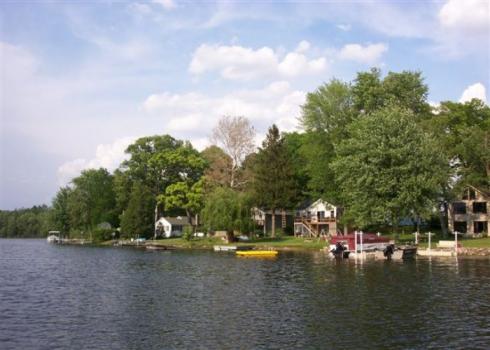
© www.lakehouse.com/fish-lake-lagrange-county-indiana-lake-homes-for-sale-b5765.html
Three lakes comprise the Valparaiso Chain of Lakes, located on the northern edge of Valparaiso, Indiana. There are no wakes in any of these lakes. On the lake, pontoons, non-motorized watercraft, and bass boats with small motors are permitted.
Lake fishing is allowed. Despite being close to one another, the three lakes are not connected. Only two miles north of Valparaiso is the Valparaiso Chain of Lakes. With a population of over 35,000, Valparaiso is a thriving city where you may enjoy all the conveniences of a lake property.
Valparaiso Chain of Lakes waterfront properties are priced widely. Walden, a Valparaiso lakeside luxury area, is famous. Larger, luxurious residences with many bedrooms, bathrooms, and features are available here. Buyers might discover a Valparaiso Chain of Lakes house within their budget.

(c) valpolakes.org/our-lakes/
So, where in Northwest Indiana is the ideal place to purchase a lake house? Well, just like when choosing a location or property, you have to determine what kind of lake life you want to have. Consider the unwritten rule in purchasing a home, which is to buy a house that meets your needs and preferences and will serve you the best. Nonetheless, here are the most common desired lake life you can check out:
If you've always wanted to live by the lake, Northwest Indiana has many lakefront properties to choose from. The price range, atmosphere, and features vary greatly so if you need help zeroing in on the best options for you, our team at RE/MAX Advanced Realty is here to help!
Call us today or send us a message to get started!
Choosing to become a homeowner might be one of the most thrilling experiences of your life. It's crucial to reflect on a few things and learn how to strike a balance between your requirements and goals as well as your budget before moving forward. To help you choose the ideal property at a price you can afford, we've put together important tips on house hunting that helped our clients find their dream homes.
Following these house-hunting tips can help you start and feel assured. Here are the five best tips when house hunting you may consider:
Determine how much you can afford to spend on a home before you start looking. To determine how much of a mortgage payment you would be comfortable with, use a budget calculator. Remember that there are other expenses you will have to pay each month as a homeowner besides your mortgage. Don't forget to include the following in your budget:
To determine your monthly payments depending on variables such as the cost of the house, the down payment, the length of the loan, and the interest rate on the mortgage, use a mortgage calculator.
Make sure you obtain a preapproval letter—as opposed to a prequalification letter—to receive first mortgage approval. Examining prequalified versus preapproved is important.
Prequalification letter: Based on an oral confirmation of your income and credit score, a lender will tell you roughly how much you can pay when they declare you're prequalified for a given amount.
Preapproval letter: A mortgage lender's preapproval letter outlines the maximum loan amount you are eligible for. Because lenders base their calculations on official documentation, such as your bank records, W-2s, and credit reports, it carries more weight than a prequalification letter.
Many real estate agents won't work with you until you have initial mortgage approval, even if you have a prequalification letter.
Prioritizing may be necessary when looking for a home to ensure you get off to a good start. We advise you to start making a list of every space you envision for your home. After that, list the characteristics you wish each room to have, room by room.
These qualities could be divided into three groups: deal-breakers, nice-to-haves, and must-haves. After you've finished designing each area, think about the essentials and luxuries for the entire house.
A must-have is something you absolutely cannot live without in your house and is one of the items you will use to weed out properties that are unfit for habitation. For example, you might require plenty of garage space for extra storage, a well-lit room for your remote home office, or three bedrooms to accommodate your family.
You'll be able to sort through real estate listings more quickly if you have a list of necessities. Perhaps you've found what appears to be the ideal house in every sense, but it's miles away from the closest school and lacks a backyard. For those who have a large family, small children, and a dog, having access to outside space and being close to a school will be essential.
However, you might want to keep the house on your list as a prospective alternative if it doesn't currently contain one of your must-haves but has the room or remodeling potential to make it happen.
Goodies are desires, not necessities. These are the kinds of characteristics you'd like to have in your house but aren't really that important. A spiral staircase, a firepit, modern appliances, or a backyard pool may be features you'd like to see in your new house, but overall, these are probably not must-haves.
Having a list of desirable features is advantageous since it can aid in your decision-making process once you've reduced the number of residences on your shortlist.

Get a sense of the local real estate market by looking through homes for sale on the internet or via a mobile app. Websites dedicated to house hunting can help you get a closer look at what your area's typical home sells for and a more accurate notion of the kind of property you can afford.
You can investigate possible communities for schools, shops, crime rates, and other factors by conducting online research on properties. Applications can facilitate process optimization by offering arranged access to listings.
Make a price comparison between your budget and what you see in the market. Next, jot down a few addresses and get in touch with your realtor or the real estate firms that represented the houses you've had your eye on.
A reputable real estate agent, often known as a REALTOR®, is an authority in your community and can ease the stress and anxiety associated with house hunting. In addition to helping you focus your search and show you more properties than you could possibly see on your own, they may also assist you make the most financial decisions.
Instead of only attempting to steer you toward the largest sale and commission, a competent real estate agent or REALTOR® will also carefully examine your unique needs when they select properties to show you.
A professional who has completed the required licensure exams to conduct real estate business in your state is known as a real estate agent.
On the other hand, Members of the National Association of REALTORS® are licensed real estate brokers or REALTORS®. They have to be in the market, have a current real estate license, follow a tight code of ethics, and have a spotless record of professional conduct.
Both can be quite beneficial while looking for a home. Collaborate with a real estate agent that holds the designation of Certified Buyer Representative (CBR) or Accredited Buyer's Representative® (ABR®). A professional with a real estate broker license, which indicates they have completed further real estate coursework, is another option for you to think about.
Prior to making a decision, interview a few prospects and request recommendations from prior house buyers. Given the amount of time you will be spending together, pick an agent whose personality complements yours and be up forward about your wants and expectations.
A lot of sellers let anyone to come inside and take a tour of their homes during open houses. Additionally, you can schedule in-person showings with your preferred real estate agent.
Be a little curious when you're looking at a house. Verify the functionality of kitchen appliances, showers, toilets, and outlets. If you choose to purchase the house, make a mental list of any repairs or replacements you might wish to request from the seller.
Finding the right house takes time and effort. However, you can make it seamless and less stressful by considering the basics, such as determining your budget, acquiring mortgage approval from your lender, and even working with a real estate agent.
If you need help with house hunting in Indiana, our team at RE/MAX Advance Realty is just a message away! Call us now at 317.298.0961 or leave a comment to get started.
For lakefront living, northwest Indiana Lakes has beautiful Lake Michigan waterfront houses for sale that you can consider. These properties along the shoreline offer quiet and recreation along with stunning views. Meanwhile, lakeside life provides boating, water sports, and sunset strolls.
From modest cottages to magnificent houses, the region's real estate market offers a distinct seaside experience. However, if you're looking specifically for Indiana all-sports lakes, this post is made specially for you!
Boaters often find their nirvana on Indiana all-sports lakes like Pine Lake, located in LaPorte County, Indiana. However, it might be a living hell for people who are looking for nothing more than peace.
Therefore, it's important to weigh its pros and cons first before moving to this area.
The disadvantages of living on Indiana all-sports lakes are that Northwest Indiana Lakes, featuring lakefront homes for sale, offer vibrant recreational opportunities; however, they might experience congestion during high-traffic summer weekends and holidays, potential interruptions due to varying lake usage, and noise from boats and bustling lake activity.
Below are the Northwest Indiana Lakes that offer water sports and activities;
Pine Lake is clean, public, and allows boating. It has many shoreline real estate opportunities. Pine Lake is open to boating, non-motorized watercraft, and fishing. Pine Lake is an all-sports, recreational lake with faster motorboats.
Parks, parking, and the lake are near LaPorte, Indiana, a thriving 22,000-person community. In LaPorte, you may find lake house amenities. Pine Lake waterfront homes usually have docks in the back. Rent dock space at a small marina on the east side of the lake. Lastly, the lake's south end has a public boat launch.
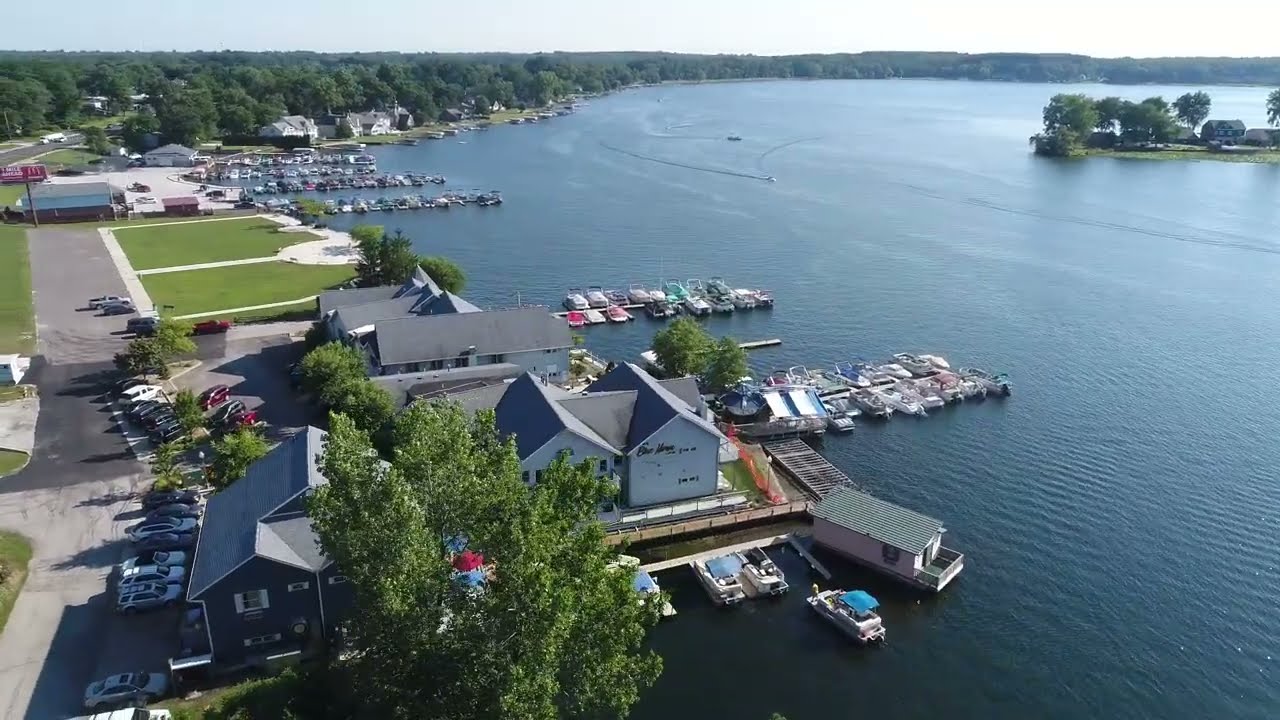
© www.youtube.com/watch?app=desktop&v=NH1po0vfyYE
Being further east than Pine Lake, Hudson Lake is an all-sports lake that won't be as crowded as others. This lake allows motorboats, bass boats, and pontoons. Water skiing, tubing, kayaking, and fishing are lake activities.
Also prohibited: motorized watercraft. A 1,200-person town, Hudson Lake. Around 1,800 people live in nearby New Carlisle. Hudson Lake is a South Shore Commuter Rail stop. This link connects this hamlet to downtown Chicago and South Bend.
Hudson Lakefront residences exist. Some homes have five or more bedrooms over 5,000 square feet, while others have two bedrooms and one bathroom.
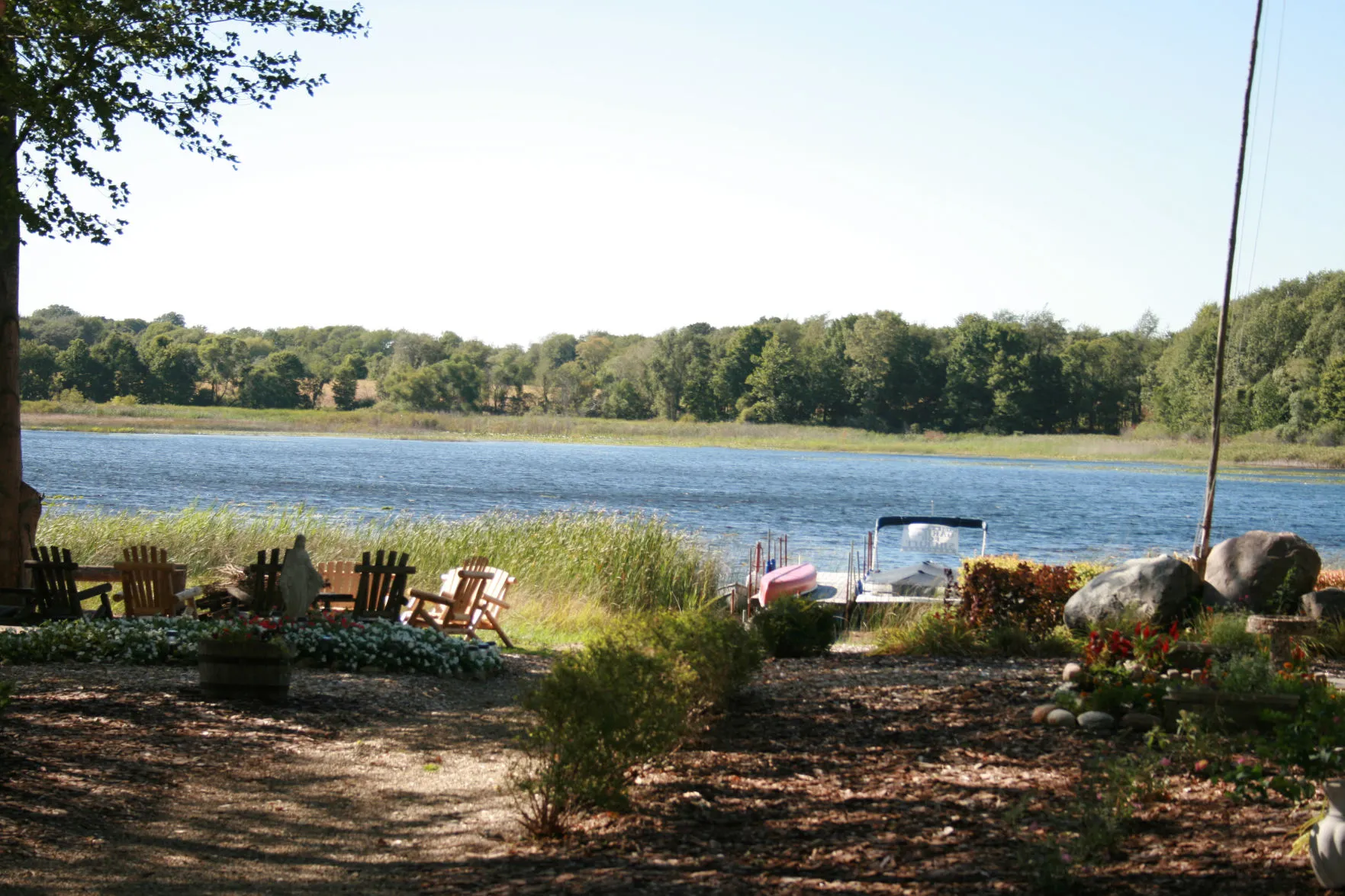
© www.southbendtribune.com/story/sports/2019/05/18/hudson-lake-soon-to-get-a-public-boat-launch/46365729/
Shorewood Forest near Valparaiso, Indiana, has upscale houses and Lake Louise, a private lake. Shorewood Forest is great for daily boating recreation. Private Lake Louise. Lake access is available to residents and guests with a residency.
The lake is all-sports with careful management. Bass boats, jet skis, pontoons, and motorboats are allowed. Kayaks are permitted, but not motorized boats. A bustling 35,000-person Valparaiso, Indiana, borders the area. Every city amenity is in Shorewood Forests. Additionally, the community offers a splash pad, pool, sports courts, walking trails, beach, and dog park.
Shorewood Forest seems like home, not lake life, despite the lake being the neighborhood jewel. Year-round inhabitants predominate. Many enormous homes are in this neighborhood. Homes average four bedrooms, three bathrooms, and approximately 3,700 square feet.
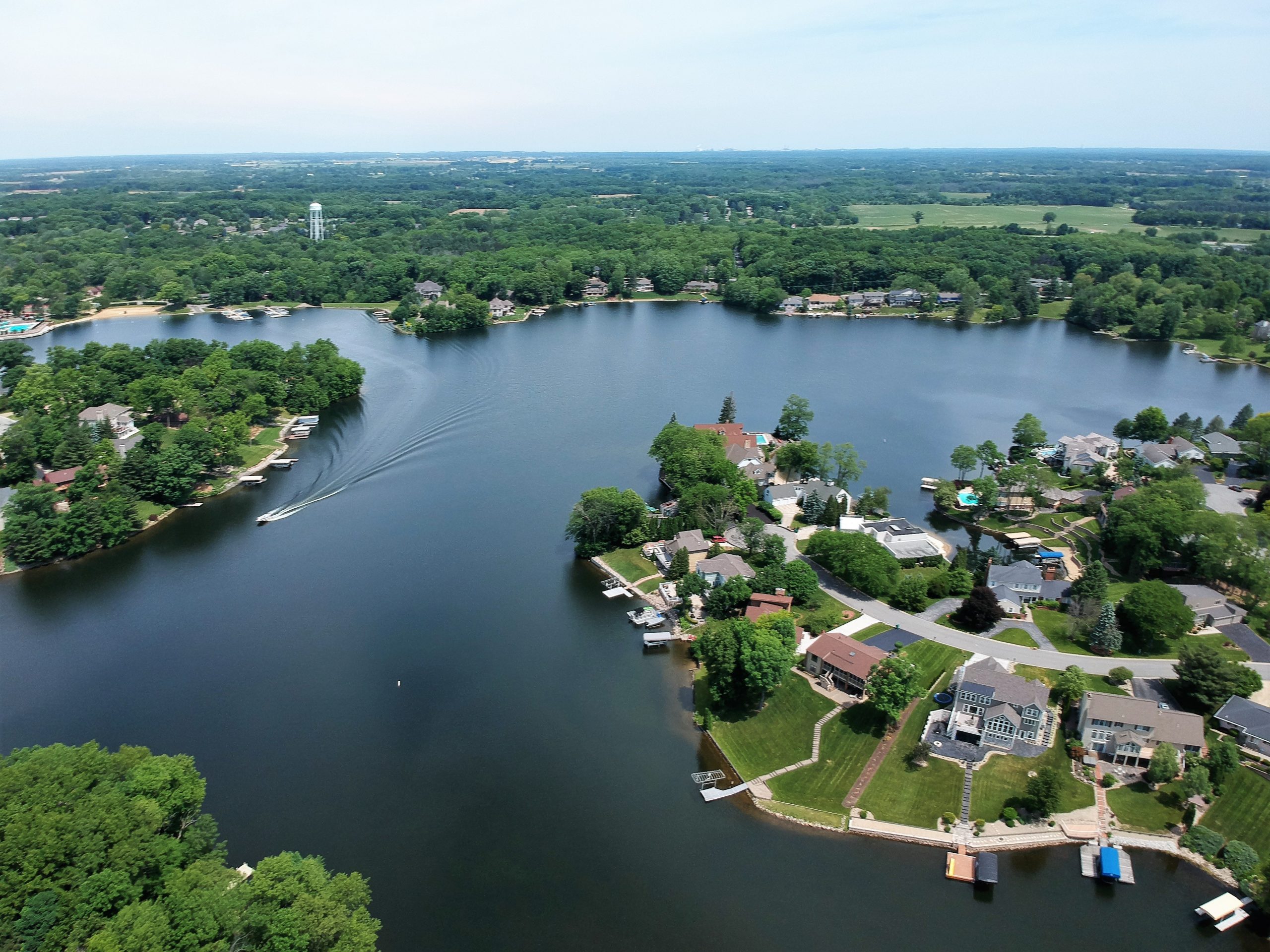
© nadinephilips.com/shorewoodforest
Central Lake County, Indiana's Cedar Lake is an all-sports public lake. Closer towns with additional facilities include Crown Point, Indiana. Cedar Lake is a lake for various activities. Motorboats, bass boats, jet skis, and pontoons are allowed. Lake non-motorized boating is allowed. Fishing is permitted. Several medium-sized cities nearby provide greater shopping and other facilities.
Cedar Lake homes for sale vary in size, features, and price. The range of Cedar Lake homes available year-round includes two-bedroom, one-bathroom homes on 1/10 acre lots to luxury homes with over five bedrooms and over 5,000 square feet. Most Cedar Lake, IN homes have three bedrooms and three bathrooms.
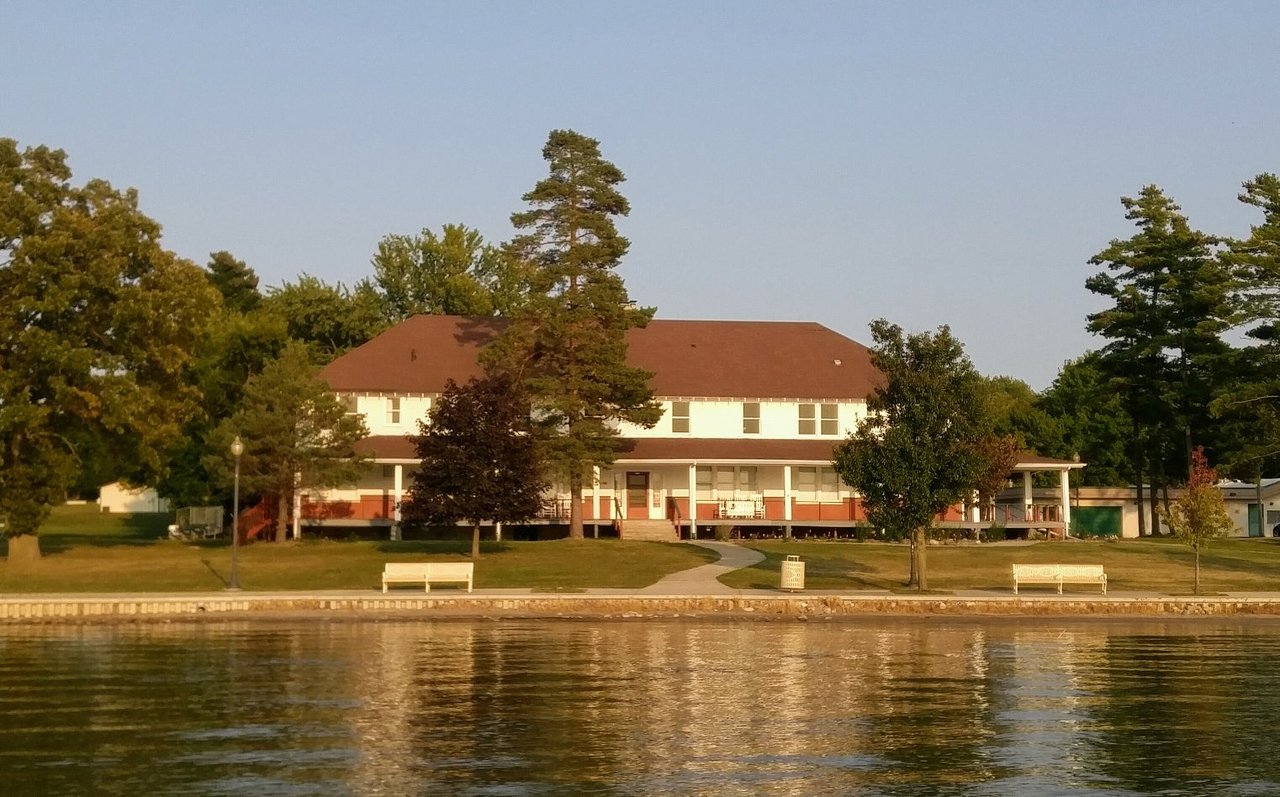
© www.tripadvisor.com/Tourism-g36996-Cedar_Lake_Indiana-Vacations.html
The Lake Dalecarlia Property Owners Association manages the private, all-sports reservoir lake. Motor boats, pontoons, and bass boats are allowed on Lake Dalecarlia. Everyone must follow the property owners association's boating restrictions.
Crown Point, 7 miles north, is a medium-sized city with all amenities. Lake Dalecarlia prohibits non-resident boating. The Lake Dalecarlia Property Owners Association requires watercraft registration.
Searching for Lake Dalecarlia, Indiana, lakefront homes only yields residences. Homes ranged from 1,000 square feet of two-bedroom, one-bathroom to 3,440 square feet of six-bedroom, four-bathroom Lots averaging 6,000–12,000 square feet.
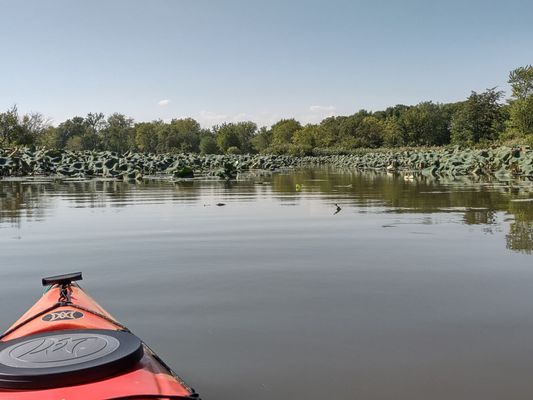
© www.yelp.com/city/lake-dalecarlia-in-us
Lake Bass is a public all-sports lake. Motorboats, pontoons, jet skis, and non-motorized watercraft are allowed. Fishing is permitted. Bass Lake is rural; therefore, shopping and conveniences are scarce. About 4,000 people live in Knox, Indiana, 4 miles north of Bass Lake.
Knox, Indiana, has Bass Lake lakefront houses. Bass Lake waterfront homes often include three or four bedrooms and two to three baths. Homes average 2,100–2,400 square feet. There are also many smaller and larger homes. Lots are more significant than in many lakefront communities.
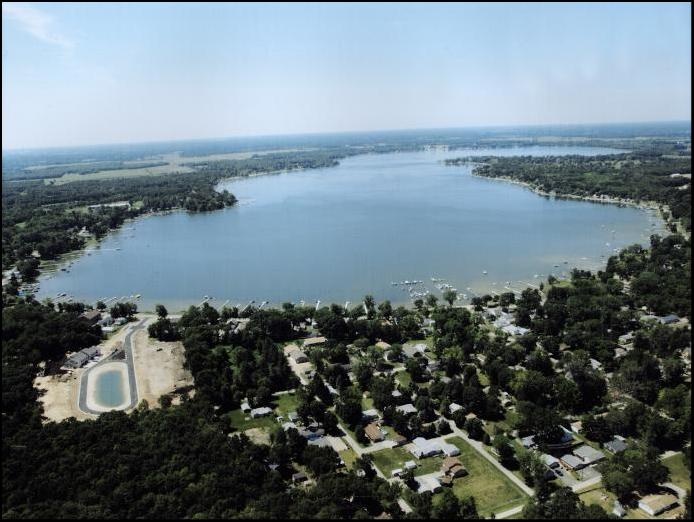
© www.pinterest.ph/pin/266979084129903956/
The second-largest lake in Indiana is Lake Maxinkuckee. This NW Indiana public all-sports recreation area has homes for sale. Motorboats, pontoons, jet skis, and non-motorized watercraft are allowed on Lake Maxinkuckee, an all-sports lake.
Culver, Indiana, has 1,353 residents. The village has restaurants, parks, and a marina. The town hosts the world-renowned Culver Military Academy. Plymouth, Indiana, 13 miles north of Culver, has additional amenities.
Northwest Indiana's most costly lakefront residences are on Lake Maxinkuckee. The most prominent homes can cost more than Lake Michigan lakefront residences. Lake homes vary in size and features. East-side Lake Maxinkuckee homes are among the most expensive.
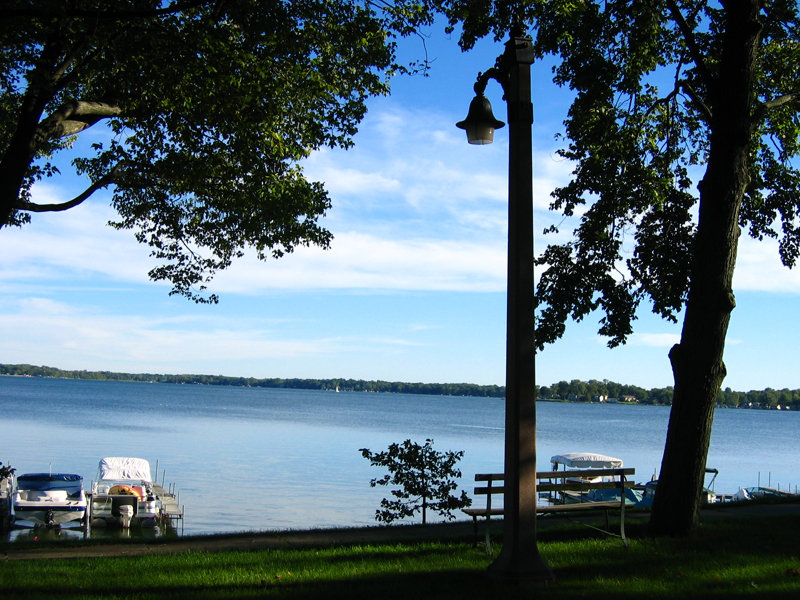
© www.city-data.com/picfilesc/picc4339.php
These are just some of the all-sports lakes you can check out when you want a lakefront property as your next home. We’ve created another post with all the information you need about no-wake lakes in Northwest Indiana so be sure to visit our website today!
Planning to move to Indiana or do you just want to know the Hoosier State even more? If yes, then allow us to give you more idea of what Indiana is like.
Other than The Indy 500, its vast farmlands, agricultural products, and the University of Notre Dame, Indiana is also home to beautiful lakes.
So if you're planning to relocate to a lakefront property, it's good news as there are tons of locations to choose from.
Life on a large lake is risky, and getting on the water may be difficult. However, it comes with some advantages too, so before you decide to buy a lakefront property, weigh its pros and cons first.
If you're eyeing a home along Lake Michigan in Indiana, there are various communities in the Northwest to choose from, each offering something unique:
About sixty miles southeast of Chicago's downtown lies the 32,000-person city of Michigan City. Along Lake Shore Dr., waterfront real estate buyers can find beachfront Michigan City homes for sale.
Only seven Lake Michigan lakefront home transactions, ranging in price from $725,000 to $3,000,000, have been recorded to the GNIAR MLS since 2021.
From west to east, there are three distinct neighborhoods in Michigan City, Indiana, that provide waterfront real estate for sale: Sheridan Beach, Shoreland Hills, and Duneland Beach.
Washington Park and the Michigan City Marina are the nearest locations to Sheridan Beach. Homebuyers may anticipate a completely beachside setting here, along with easy walking access to parks, the marina, the Michigan City Zoo, and a few local eateries.
Shoreland Hills is located further east and is not close to any amenities by foot. Still, there are actually very few lakeside residences that are listed as being in Shoreland Hills.
Last but not least, purchasers might discover a Michigan City lake house in Duneland Beach for sale. Except for one thing, all of the properties in Duneland Beach are waterfront. Indeed, they are lakefront, but they are situated on the south side of Lake Shore Drive since the beach is owned by the neighborhood association, which has a building prohibition. Duneland Beach lakeside homes are, well, lakefront, but you have to cross the street to get there. From properties along Lake Shore Dr., there are unimpeded views of the lake since you see across the bare beach that you and approximately 150 other residents jointly own.

© www.britannica.com/place/Lake-Michigan
In the Indiana bedroom community of Long Beach, buyers can find homes for sale that are located on Lake Michigan. This community also has 2.3 miles of Lake Michigan shoreline. This encompasses Moore Road and Lake Shore Drive from about west of Blanchard Ct. Michigan City, which encircles Long Beach to the west, south, and east, has all the amenities that are required. Long Beach is a good place to seek a lakeside house for sale in Michigan City.
Six Lake Michigan beachfront Long Beach houses, with prices ranging from $1,225,000 to $2,290,000, have sold through the GNIAR MLS since 2021. Long Beach waterfront properties for sale usually offer 2,300 to 5,000 finished square feet, three bedrooms, and two bathrooms. The dimensions of lots vary from 7,000 to 25,000 square feet.
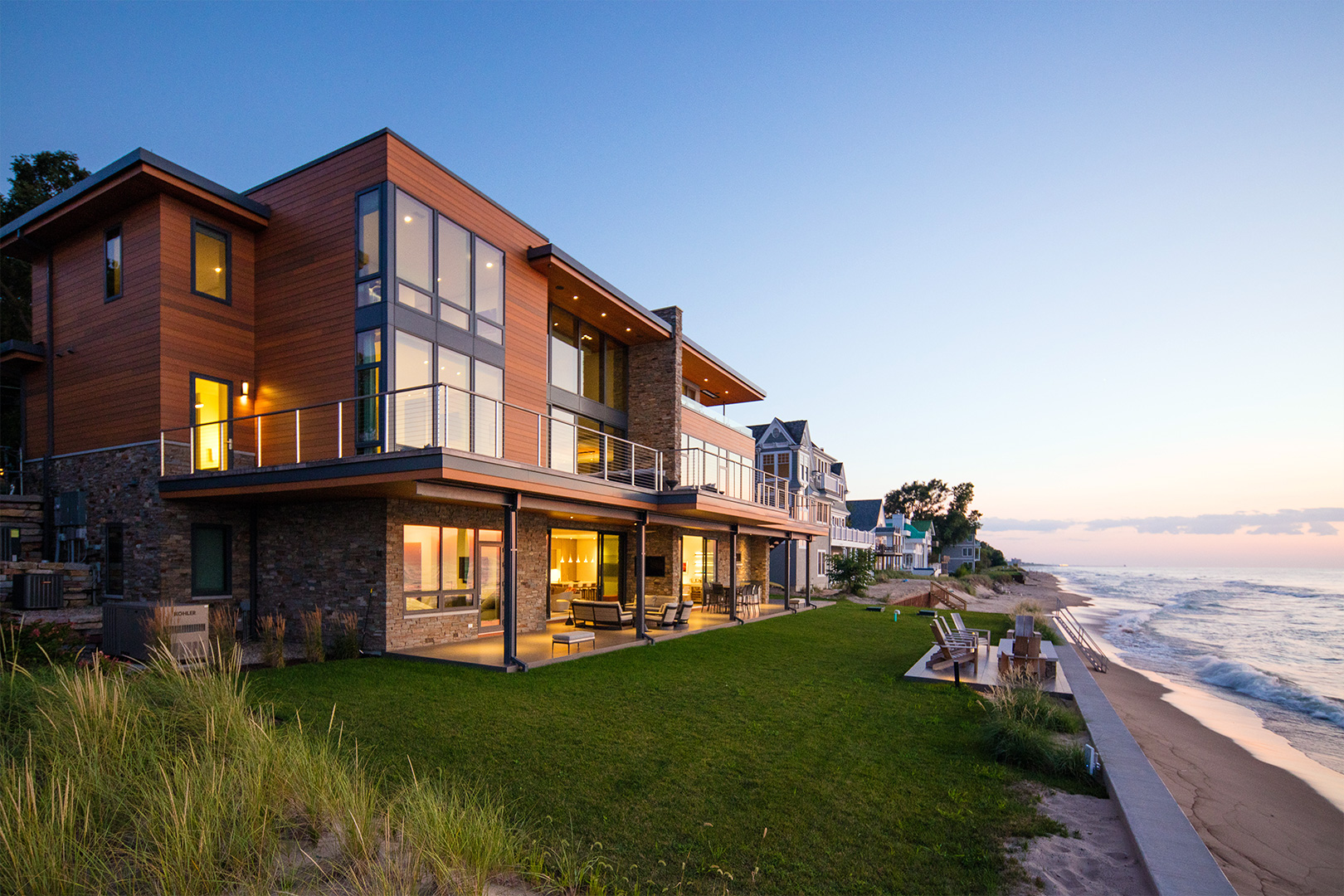
© www.realcedar.com/blog/project-of-the-week-long-beach-residence/
Beverly Shores in north east Porter County offers Lake Michigan lakefront residences. This 600-person bedroom community is called Beverly Shores. Connected to downtown Chicago by the South Shore Commuter Rail Line, it has minimal amenities; however, Michigan City and Chesterton have everything.
Purchasing a waterfront property in Beverly Shores, Indiana, is less expensive than Long Beach or Michigan City. The waterfront in Beverly Shores was selling for between $522,000 and $875,000; however, this is not true lakefront real estate.
The houses near the lake in Beverly Shores are all located on the south side of Lake Front Drive, which runs parallel to the lake. You must therefore go across the beach and cross the roadway to get to the ocean. In essence, residences on the lake do not actually own the lakefront.
A marina is not present in Beverly Shores. Alternatively, locals can take a boat out from Michigan City's marina, which is about four miles distant. On the other hand, Beverly Shores is close to several protected areas, such as Indiana Dunes National Park. For those who enjoy the outdoors, this adds significantly to the value of Beverly Shores, Indiana, real estate.
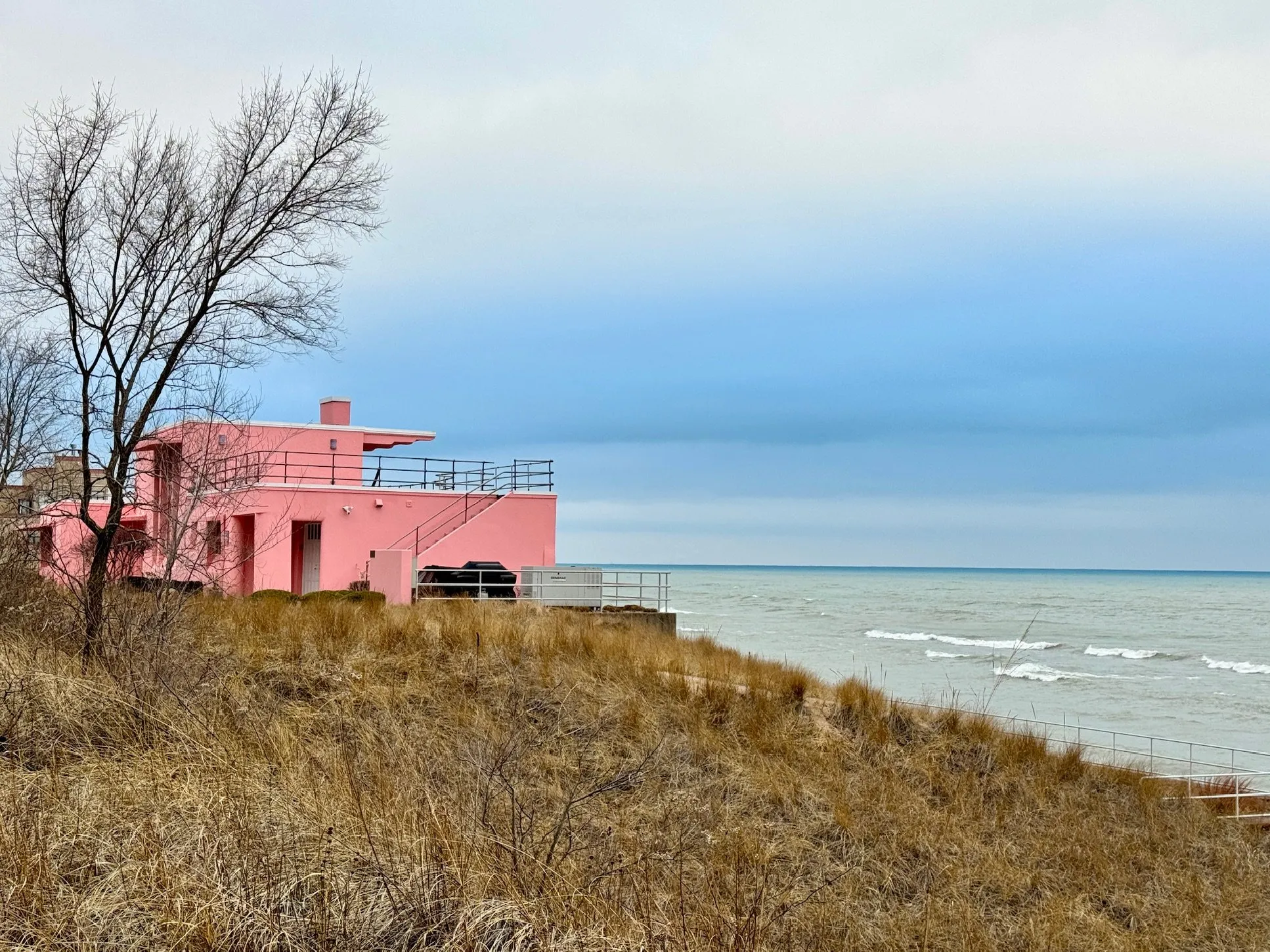
© www.chicagotribune.com/2024/01/14/historic-beach-home-in-beverly-shores-on-market-for-25-million/
About 1,200 people live in Ogden Dunes, Northwest Porter County, 40 miles from downtown Chicago. A bedroom community surrounds Lake Michigan, Ogden Dunes has trails, parks, and protected places nearby. The South Shore Commuter Rail Line stops at Ogden Dunes. Chesterton and Portage, Indiana, offer more amenities.
In Ogden Dunes, Indiana, real estate buyers can acquire lakefront homes on Lake Michigan. Recently, the price range for beachfront properties in Ogden Dunes was $860,000 to $1,250,000.
Shore Drive runs parallel to the shoreline, and on its northern side are lakefront residences. However, in Ogden Dunes, erosion has reduced the amount of beach in recent years.
Ogden Dunes does not have a marina where one could launch a boat onto Lake Michigan.
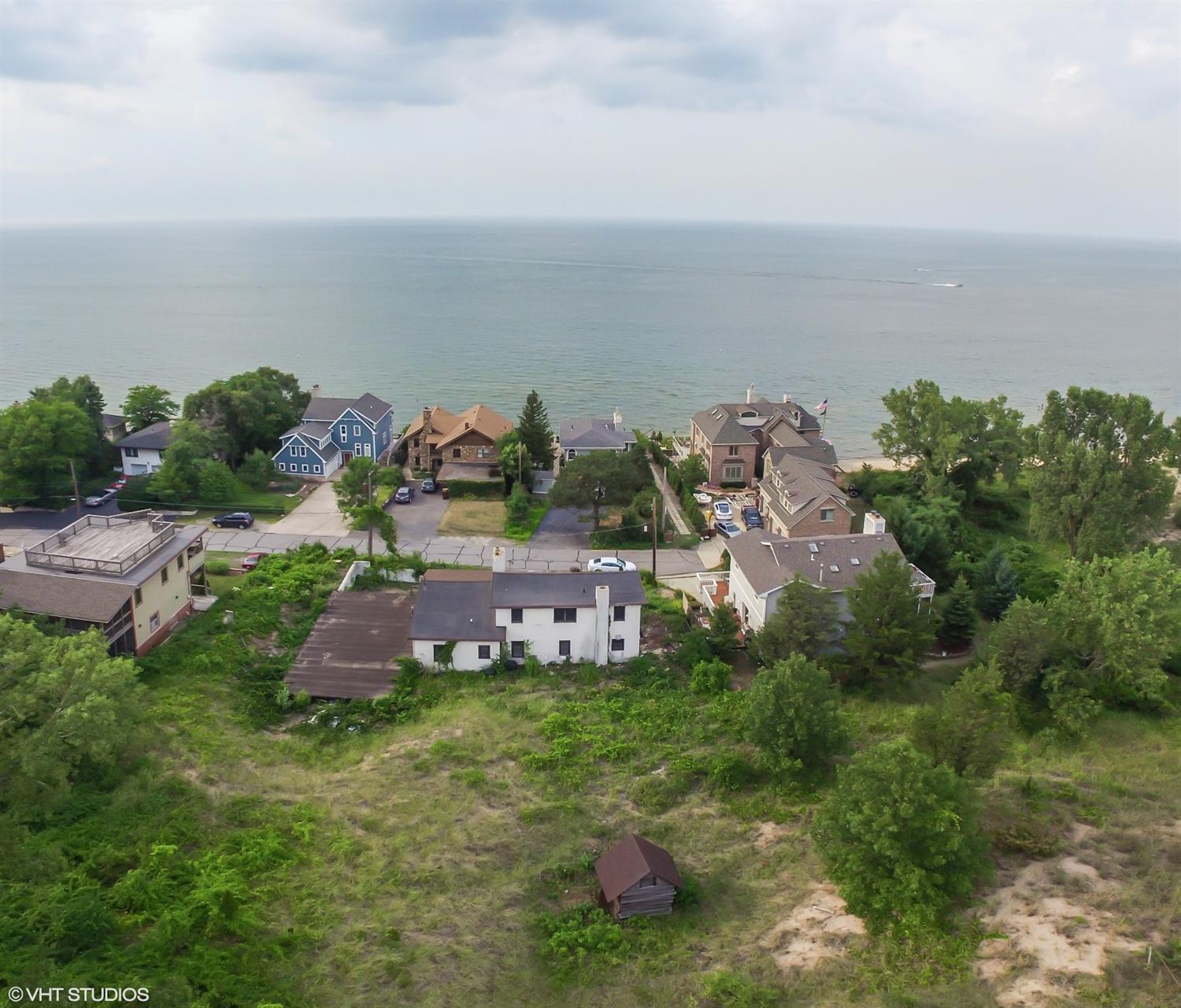
© www.atproperties.com/398806/5-shore-drive-ogden-dunes-indiana-46368-nwi
In Gary, Indiana, there is a neighborhood called Miller Beach on the northeast side. This is where purchasers may find beach houses for sale in Miller.
The population of Miller Beach ranges between 9,000 to 10,000. Because Miller Beach has so few amenities in reality, Gary and Portage, Indiana, subsidize the region. There is a stop on the South Shore Rail Line that connects Miller Beach to downtown Chicago. The Loop is 35 miles southeast of Miller Beach. The Miller Beach marina is nonexistent.
Depending on its size and amenities, lakefront Miller Beach real estate often sells for between $600,000 and $1,400,000.
These are just some lakefront locations in Indiana. Watch out as we list down the All-Sports Lakes in Northwest Indiana.

© www.visitmillerbeachgary.com/find-us
Many buyers today ask themselves, "What are the things to think about when purchasing a home?" Because of the changing housing market trends and unstable economic situations, choosing wisely can be challenging.
Planning things well is important, especially since buying a home is a huge decision and investment. Here are things you need to know when purchasing a home in the current market and things you need to consider before signing a contract.
Acquiring a home involves more than just choosing the ideal layout and style—it also involves fitting in with the overall real estate market conditions. Understanding the subtleties of the ever-changing housing market of today can help you differentiate between a profitable investment and a possible risk.
The decision-making process is heavily influenced by the personal circumstances of the majority of prospective homeowners. Making sure your monthly payments are within your means is crucial because mortgage rates fluctuate.
However, in addition to monthly mortgage payments, these are the things to think about when purchasing a home such as the closing expenses, property taxes, and possible changes in house prices all impact your choice.
In these situations, your credit score plays a crucial role in figuring out what kind of mortgage loan you might be eligible for. Lenders typically offer more favorable terms to borrowers who have higher credit scores.
This implies that their purchasing power in the current market may be further increased by their eligibility for better loan options and reduced mortgage payments. You can also strengthen your negotiating position by making sure you pay your credit card bills on time and use credit cards sparingly.
Some locations have seen pressure on median home sale prices to rise, while others have an abundance of housing options as a result of a boom in inventory. Before agreeing to a contract, prospective buyers should investigate the housing inventory in different neighborhoods.
It may be quite helpful to have an experienced RE/MAX Advanced Realty real estate agent on your side, particularly while navigating the complexities of the housing market. Our team provides excellent service, making sure that prospective buyers are aware of everything from mortgage rates to credit score criteria to the current pace of the market.
Before buying a home, you must understand that there are a lot of things to think about. Knowing the real estate market and your finances can make all the difference.
Here is a brief guide to help prospective homeowners navigate the complex process.
Having a solid foundation of financial security is the first step on the path to house ownership.
It is essential to have a solid understanding of the real estate market to guarantee the success of your investment.

When deciding to purchase a home, your personal life and your goals for the future are important considerations.
An extensive local real estate market knowledge is essential to making the right decision.
Regarding the potential for appreciation of your investment, selecting the appropriate neighborhood can have a significant impact.
With their extensive market knowledge and expertise, real estate agents can help when you purchase a home.
Before purchasing a home, you must understand your lender's position.
Real estate may appear like a good investment, but personal investment techniques must be considered.
Buying a home is a big financial decision that can greatly impact your life. That said, it's important to learn about the current housing market trends and prices can influence your purchase in a buyer's or seller's market.
If you want to learn more about the real estate industry, we have a lot of resources you can use. Just visit our website or better yet, call us at 317-316-8224 so we can help answer your questions.
It's thrilling to look for a new home, especially when you discover what appears to be the ideal one. However, looks can be deceiving.
The largest problems in a house can be hidden from view if you don't know what to look for. And if you don't exercise caution, you can eventually wind up with a lemon of a new home that will end up costing you far more than you anticipated.
Avoid falling in love with a house before you have all the information, especially any warning signs. Maintaining composure and being vigilant can help you make a more informed choice and ensure that your new house is worth every penny.
Below are the top real estate red flags that might tip off buyers when hunting for a new property.
The most prominent red flags in real estate are listing prices that might seem too good to be true. This usually means sellers are extra-motivated in selling their home, which should make you question why.
They may need to sell soon for financial, personal, or career relocation reasons, or the home may be in bad shape. Ask your Realtor about the too-good-to-be-true price.
With many online real estate marketplaces, purchasers may easily research a property's history. If the home's sellers have lived there for two years or less, you might want to question their short tenure. Another problem might be if the home has had too many homeowners in the past as this might suggest that something is wrong with the property.
One of the approaches is to reach out to the listing agent to learn why the sellers are moving.
Is your Realtor the listing agent for the house you wish to buy as well? In that case, we recommend looking for a different buyer's agent who can prioritize and protect your interests during the entire real estate transaction. Ultimately, the goal of a listing agent is to maximize the seller's home's value, which is not in your best interest as the buyer. This is because the listing agent may lose sight of what's best for their buyers. After all, they want to close the deal quickly.
This might not sound like a big deal but this red flag should not be ignored.
As a potential home buyer, you might want to ask why the listing has a few photos. In today's digital age, it's not challenging to take images, so having a few or none at all might suggest that there might be something wrong with the listing.
Before taking a tour of the house, we advise you to ask your Realtor to find older pictures of the property from earlier postings. If any rooms were omitted from the advertisement, be sure to inquire as to why with the sellers.".
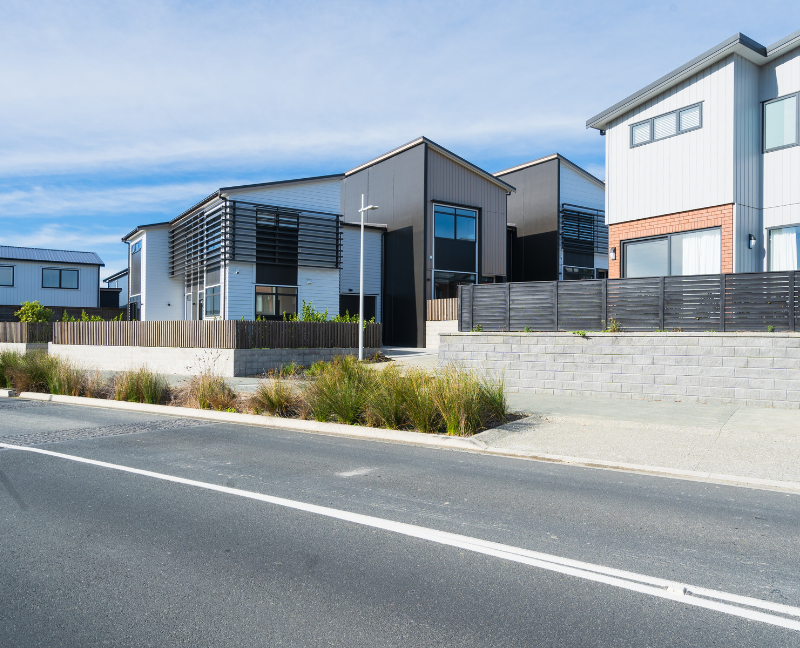
Is the house near a busy highway or road? If yes, the listing images will likely attempt to hide this by adjusting the angles so potential viewers won't see the road.
Therefore, before you visit the house, look up the address on Google Maps. Homes next to or on major highways and roads usually have a harder time selling. One reason is that homeowners have to deal with pollution and health issues in addition to noise and traffic.
Renovations are good; however, if it's too much, it might indicate inconsistent renovations and adjustments. Permit requirements and rules change. If multiple owners have altered the home, some work may have been illegal.
Do you notice several other houses on the same block listed as "For Sale"? There might be a reason for that. If there was ever a real estate red flag, it would be a mass evacuation from the street.
When you notice that several of your neighbors have listed their house, be careful to inquire as to why.". This can be a sign of a problem, or it might just be a coincidence. In any case, find out the truth before buying a house on the street.
Is it obvious that this is a flip? Make sure to find out who remodeled the house if the developer bought and made renovations before listing it for sale. Keep in mind that savings may have been made on renovation costs, particularly if the developer had no intention of residing in the house. For example, even though the makeover might have improved the house's appearance, it might not have enhanced the most vital parts, such as the HVAC system, plumbing, roof, and electrical wiring.
Is the house under contract and then all of a sudden back on the market? That might be a bad sign.
A house that comes back on the market even just after closing a deal may indicate there is a problem with the residence or the home inspection went wrong. Unfortunately, this happens frequently. For instance, there's an infestation or electrical issues. Although repairable, the costs might be too high.
They say, "Where there is smoke, there is fire."
Pay notice if you detect an unpleasant smell coming from a house. This suspicious incident can be an indication of poor home maintenance.
Unpleasant smells may be signs of plumbing, HVAC, mold, water damage, vermin, or inadequate ventilation in a house.
Take Note
First things first: Never skip a home inspection, regardless if you notice any red flags or not. This way, you'll know what's wrong before buying the property.
If the inspection report indicates issues, purchasers can decide whether to fix them before buying.
Can you think of other red flags when buying a home? Do you have any relevant experience you can share? If yes, we'd love to hear your thoughts in the comments!
Have you heard of the term "dry closing" before?
If yes, but you're not certain what it means or if it's your first time hearing it, then you're in the right place.
Dry closing is when all the papers are signed, and payment is sent, but the ownership transfer doesn't happen immediately because of an unfinished business. In simple terms, it's when a buyer and seller agree to close on a house before any money has been handed in.
In this post, we'll discuss what dry closing is about, why it occurs, what makes the seller agree to this as well as other frequently asked questions about it.
A dry closing differs from a "normal" wet closing simply because the seller is paid after the buyer fulfills the mortgage criteria and the closing documents are signed.
Dry closings occur only when the buyer and seller agree on the same thing. When events arise that ordinarily lead to a buyer or seller pulling out of the sale, they are designed to keep the transaction moving forward. Lastly, just a few states allow dry closings.

When selling a house, people expect closing payments. Most states mandate a 'wet close' for all real estate transactions.
Every closure should be wet, but the lengthy and challenging process may prevent the buyer from paying on closing day. The parties can wait two or three business days for the earnest cash rather than dissolve and fight over the deal.
The buyer or lender usually causes a dry closing since the buyer's finances to pay for the selling are delayed. This could be due to a payment glitch that takes time for the lender to fix, the buyer needing to meet an outstanding condition to get a mortgage, or the seller having a similar issue with their property that prevents a sale condition from being met.
Dry closings keep deals alive and ensure buyers get houses and sellers get money. Thus, dry closing may be preferable to wet closing, which fails if the seller doesn't obtain their money on closing day.
Dry closings do not necessarily mean the buyer is untrustworthy. Deals sometimes need to be corrected, and funding arrives late. That means it will come so close first and retrieve your money a few days later.
To answer this, you must consider the role of the lender. Overall, they have a huge influence on real estate closing. A buyer seeking a home from a seller rarely has the money to pay. So they borrow money from lenders to be able to purchase the property.
The buyer puts the property as collateral for the loan, so the lender may repossess it and get their money back if things go wrong. Thus, the lender pays the seller, not the buyer. If the lender delays sending the loan to the buyer, a dry closing may be beneficial while the lender resolves its concerns.
While the buyer and lender are typically the source of a dry closing in real estate, the seller may sometimes be the one to force a post-closure funding delay.
After a dry closing, sellers should not relinquish their home's title. Keep the title and key until they have money. In the odd event that finance fails, it can be difficult to reclaim the title from the buyer if the transfer is already completed.
Dry closing is when a buyer and seller agree to close on a house before cash is exchanged, with the seller paid once the buyer meets mortgage requirements and signs closing documents. The seller's credibility is rarely involved in this situation, which usually requires buyer financing delays.
Though it delays seller payment by a few days, a dry closing can keep deals alive and go forward. Providing funds and causing delays are vital to the lender. At a dry closing, sellers should keep ownership until payment is made to avoid financing issues.
In the dynamic landscape of Indiana real estate, one team stands out as the pinnacle of excellence: The Indy Home Pros Team at RE/MAX Advanced Realty. Renowned for our unwavering commitment to delivering exceptional results, our recent triumphs in the 2023 rankings reinforce our position as the undisputed leader in the industry. Let's delve into what sets us apart and why aligning with us means embracing unparalleled success.
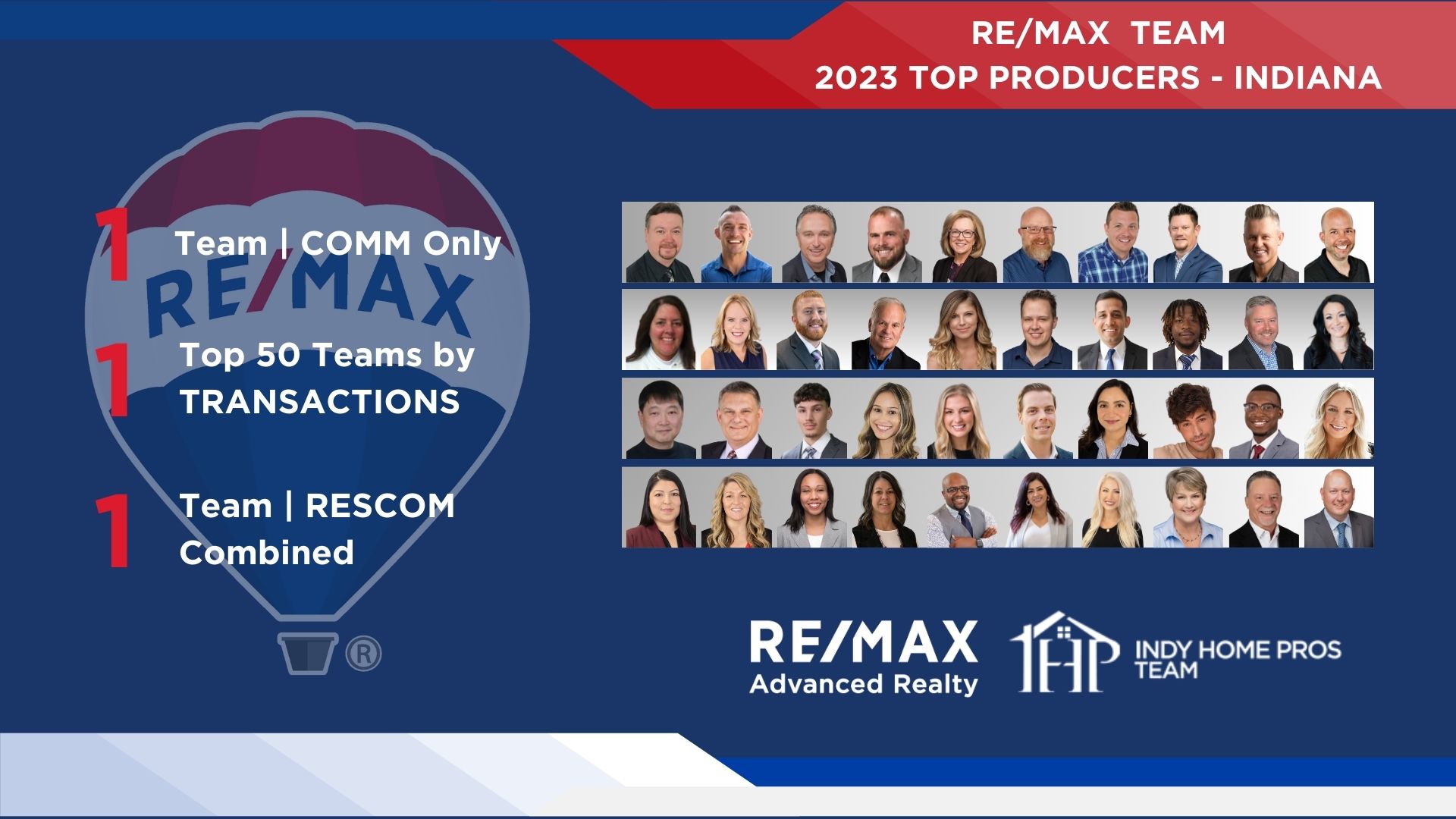
The collective journey of the hardworking agents at the Indy Home Pros Team to the summit of Indiana's real estate landscape is defined by our unwavering performance and outstanding achievements statewide. In the 2023 RE/MAX Top Producers rankings, we proudly claimed the #1 position in every crucial category: Team | Commercial Only, Top 50 Teams by TRANSACTIONS, and Team | Residential and Commercial Combined. Our expertise extends beyond mere residential properties, as we excel in both Residential and Commercial Combine Combined Categories. Through our relentless pursuit of excellence and innovation, we as a team, continually set new standards, demonstrating our unwavering commitment to exceeding expectations in every transaction.
The Indy Home Pros Team's success transcends local boundaries, earning us recognition on a global scale. In the RE/MAX Year-End Top 100 U.S. rankings, The Indy Home Pros Team secured and impressive position, ranking #16 in both Team, Residential & Commercial categories. Furthermore, on the global stage, we stood strong in the RE/MAX Top 100 Worldwide rankings, achieving a remarkable #37 position in both Team Residential and Commercial categories.

Our excellence in commercial real estate is particularly noteworthy. In the RE/MAX Top 25 U.S. rankings for Large Teams, Commercial we soared to the #3 spot, showcasing our proficiency and expertise in this domain. Moreover, on the global scale, our team's prowess was evident as we clinched the #7 position in the RE/MAX TOP 25 Worldwide rankings for Large Teams, Commercial. In residential real estate, our achievements are equally remarkable. We solidified our presence in the RE/MAX Top 50 Worldwide rankings for Large Teams, Residential, achieving and impressive #36 position. Additionally, in the competitive U.S. market, The Indy Home Pros Team secured a commendable #16 spot in the RE/MAX Top 50 U.S. rankings for Large Teams, Residential. These rankings underscore our team's dedication to excellence and our capacity to achieve outstanding results across various segments of the real estate market.

Are you an ambitious agent ready to take your career to unprecedented heights? Joining the Indy Home Pros Team means gaining access to a supportive culture rooted in mentorship, collaboration, and cutting-edge technology. Led by industry luminary Dennis Nottingham, our team empowers agents to unlock their full potential and thrive in today's competitive market. Seize the opportunity to be part of Indiana's number one team and embark on a journey of unparalleled success. Reach out to us today to explore exciting opportunities and eleveate your real estate career with the Indy Home Pros Team.
Whether you're buying or selling, The Indy Home Pros Team is your trusted ally in achieving your real estate goals. Our proven track record and excellence, highlighted by our recent accolades, ensures that you receive unparalleled service and results that surpass expectations. Don't settle for mediocrity when you can partner with the best. Choose the Indy Home Pros Team for all your real estate needs and experience the transformative power of true expertise.
When it comes to real estate success, trust the team that consistently ranks number one in Indiana and reigns supreme in the industry. Contact The Indy Home Pros Team today to kickstart your journey towards realizing your dreams. With us by your side, your success is not a possibility - it's inevitable. Let's make it happen together.
When buying a home, two of the common terms you might hear a lot are "Annual Percentage Rates (or APR for short)" and "Interest rates." Now, while these two might sound like they mean the same, the truth is, there are a few differences that you should know.
So before you get a mortgage, let's learn how:
First thing first, let's learn what these two terms are.
Your interest rate is what you pay a lender when you borrow money for a set amount of time. The mortgage interest rate may be fixed throughout the loan or may vary with market rates. It is always expressed in percentages.
On the other hand, an Annual percentage rate (also known as APR) is the total amount of money you pay for a loan, which includes the interest rate plus any other costs and fees that come with the loan, like private mortgage insurance (PMI), prepaid interest, some closing costs, mortgage points (also known as discount points), and other possible fees.

Your APR is less under your control. Broker and origination fees are other variables that your lender controls and affect your annual percentage rate.
By paying 20% down, you can avoid private mortgage insurance, but comparing lenders is ideal. Loan plans and APR rates should be compared.
Your lender uses personal data to calculate interest. None of them utilizes the same interest formula although some mortgage lenders provide ten interest rates.
Meanwhile, banks consider market interest rates and real estate economy conditions while computing your rate. Your mortgage lender can cut your interest rate in ways. Your rate will generally drop if you reduce your lender's risk.
To get better rates, you have to improve your credit score, a three-digit statistic that shows lenders how you use credit. If you have good credit, it means you pay on time and don't borrow more than you can afford.
Meanwhile, having low credit makes you riskier to lenders as it usually means you have a history of late payments, defaults, etc. As a result, you might get a higher interest rate from a lender or might not get approved at all. VA, FHA, and USDA loans can cut your interest rate.
A federally insured loan will reimburse your lender if your home is foreclosed. The interest rate on a government-backed loan may be lower than on a traditional loan. Remember that mortgage insurance will affect your payment, so consider all your options.
Interest rates are the annual cost of borrowing money whereas APR includes additional expenses. Your APR will be larger than your interest rate because it has interest and other loan expenses.
Your effective interest rate can also be considered your annual percentage rate (APR). Be sure to take into account both the interest rate and the APR while selecting the mortgage loan that is most suitable for your needs.
The Bottom Line
Your APR comprises your interest rate and any other costs or fees you may be required to pay your lender. Your interest rate is the percentage of interest you pay on a loan. Discount points, private mortgage insurance, and brokerage fees are a few of the most popular extra costs. Your annual percentage rate (APR) represents the real interest rate you will pay on your loan after you get it.
Before a loan closes, the lender must disclose to you both the interest rate and the annual percentage rate. By maintaining your credit score and, potentially, selecting a government-backed loan, you can reduce your interest rate. Nevertheless, since the lender determines a lot of these fees, you need more control over your APR. That being stated, comparing comparable loan programs offered by other lenders is the greatest approach to getting a lower APR.
Learn more about mortgages here.

8313 W. 10th St
Indianapolis IN 46234
dennis@indyhomepros.com
317-316-8224